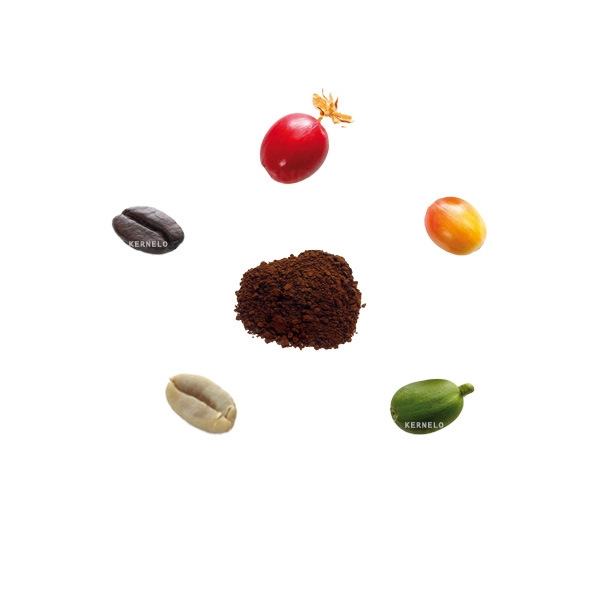Showing the single result
Coffee
Coffee is more than simply a drink; it’s a daily habit, a worldwide cultural phenomenon, and for many people, an essential component of existence. Coffee is a beverage that has a rich history and an even wider range of tastes and preparations, having originated in the Ethiopian highlands and currently being enjoyed by people all over the world. This article will discuss the history of coffee, its cultural significance, its health advantages, and several common brewing techniques. Top Coffee supplier are including Brazil, Vietnam and Colombia.
According to folklore, a goat herder by the name of Kaldi discovered the invigorating properties of coffee beans in Ethiopia, which is where the tale of coffee began. After seeing his goats consume berries from a certain tree and experiencing an extraordinary increase in energy, Kaldi tried the berries himself and had a similar surge. Coffee was first cultivated and traded in the Arabian Peninsula when this discovery spread there over time. Coffee was produced in the Yemeni region of Arabia by the fifteenth century, and by the sixteenth century, it had spread to Persia, Egypt, and the Ottoman Empire.
History of Coffee:
By the 17th century, coffee had reached Europe and was rapidly gaining popularity throughout the continent. Coffee shops, sometimes referred to as penny universities, developed become hubs for commerce, intellectual exchange, and social engagement. These businesses established the foundation for contemporary cafés. Coffee arrived in the New World around the middle of the 1600s, although at first it was opposed. But it quickly became well liked, especially after the Boston Tea Party, when tea drinkers converted to coffee as a show of patriotism.
Types of Coffee:
Coffee is currently farmed in more than 70 nations worldwide, mostly in the tropical regions of Africa, India, Southeast Asia, and the Americas. Robusta and Arabica are the two most widely consumed species of coffee.
Arabica: Approximately 60–70% of the coffee produced worldwide is Arabica coffee, which is prized for its flavorful complexity and smoothness. It is more costly to farm since it is usually planted at higher elevations and is more vulnerable to pests and illnesses.
Robusta: Robusta is more resilient and can be cultivated at lower elevations. It is well-known for its robust, bitter flavor and greater caffeine concentration. Because of its creamy crema, it is frequently used in instant coffee and espresso mixes.
The Method of Brewing:
From the coffee bean to your cup, there are a few stages involved:
Harvesting: To guarantee that only the ripe cherries are chosen, coffee cherries are usually plucked by hand. This is a labor intensive operation.
Processing can be done in two basic ways: wet and dry. In the wet technique, the cherries are pulped and the beans are fermented; in the dry method, the cherries are stretched out in the sun to dry.
Roasting: This method turns the green coffee beans into the familiar fragrant brown beans. The degree of roasting might vary, impacting the taste character.
Grinding: Depending on the brewing technique, the beans are ground to a certain size. For instance, you need to grind fine for espresso and coarse for French press.
Coffee may be brewed in a variety of ways, with each technique bringing out unique aromas and qualities from the beans.
Coffee Brewing Techniques:
Drip Coffee: Drip coffee makers are a common household appliance since they are easy to operate and consistently brew a cup of coffee.
Espresso: This technique creates a concentrated shot with a rich taste and a creamy crema by forcing hot water under high pressure through finely ground coffee.
French Press: Also referred to as a press pot, this technique entails steeping coarsely ground coffee in hot water and then using a plunger to push the grounds out.
Pour Over: This manual approach gives you exact control over the brewing process by simply pouring hot water over coffee grinds in a filter.
Cold Brew: A smoother, less acidic coffee is produced by steeping coffee grounds in cold water for a long time, often 12 to 24 hours.
Coffee’s Health Benefits:
Enhanced Cognitive Function: The natural stimulant caffeine, which is included in coffee, can improve mood, energy levels, and memory.
Coffee is a great source of antioxidants, which can help lower the risk of chronic illnesses and combat inflammation.
Decreased Risk of Specific Illnesses: Research has connected consistent coffee drinkers to a decreased risk of ailments such as Parkinson’s, Alzheimer’s, and type 2 diabetes.
Are you looking a trusted exporter and Coffee supplier?
Please contact our team:
WhatsApp:+12369787140
info@nutsbazaar.ca

